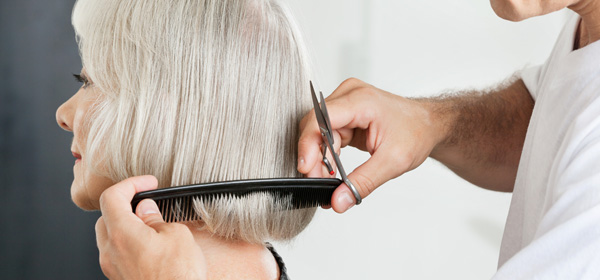Sadly, as we age, our crowning glory will also show the ravages of time. For many of us, the lustrous locks of our youth are just a memory. But on a positive note, the condition of our hair can also give us clues to poor health, sending an early warning that we ought to check up with the doctor, according to the Mayo Clinic.
Shedding between 50 to 100 hairs a day is normal and should not send you rushing to the clinic. But losing clumps of hair and other major changes in its condition need to be taken seriously.
Here are some illnesses that the state of your hair could be signalling.
Hypothyroidism
A sudden change from thick hair to thin and limp could suggest hypothyroidism, which is an underactive thyroid located in the neck. When your thyroid isn’t producing sufficient hormones, your metabolism will slow down and this leads to thinning hair, among other symptoms. Other signs of this medical condition include thinning eyebrows, always feeling cold, extreme tiredness and putting on weight.
Excessive hair thinning may also be a sign of a hormonal imbalance related to polycystic ovarian syndrome.
Diabetes
A number of conditions can cause hair to thin drastically and produce areas of baldness. Women who suffer from patchy baldness may have a testosterone imbalance that shrinks and kills the hair follicles. But more often than not, diabetes can lead to considerable hair loss because the associated poor circulation fails to nourish the scalp.
Cushing’s Syndrome
This disease of the adrenal glands produces excess cortisol. Sufferers of Cushing’s Syndrome typically have dry and brittle hair that breaks easily.
Seborrheic dermatitis
This skin condition produces dandruff and an itchy scalp. It results from a chronic inflammation of the skin on our heads and is often associated with a yeast organism. It tends to be a seasonal condition and needs to be treated the minute you discover the telltale flakes of skin falling from your head.
Vitamin deficiency
Sometimes, a seemingly healthy and balanced diet may be anything but that. Unfortunately, many of the foods we eat no longer contain adequate amounts of vitamins and other nutrients. This will often manifest in dull hair, prone to falling out. If you suspect a vitamin deficiency, ask your doctor to refer you for testing of your vitamins A, B, D and iron levels. If you have a vitamin deficiency, supplements can help.
Some medications can also lead to hair loss, including anti-depressants, blood thinners, treatments for rheumatic and skin conditions, and even ibuprofen.
Is your hair thinning and have you discussed it with your doctor? Do you have any tips for improving the condition of your hair?
Related articles:
What causes hair loss?
How to avoid baldness
Keeping your hair lustrous

